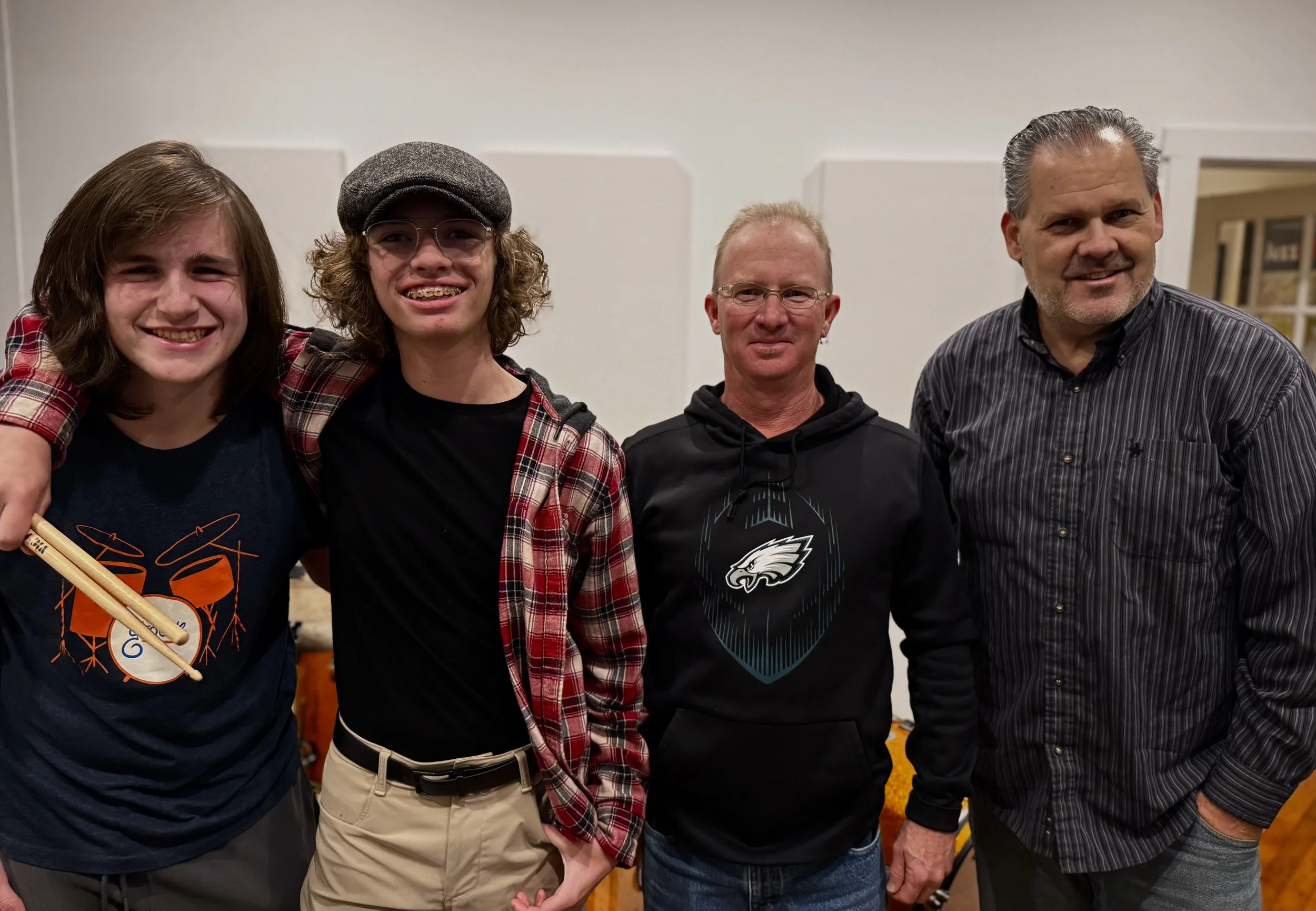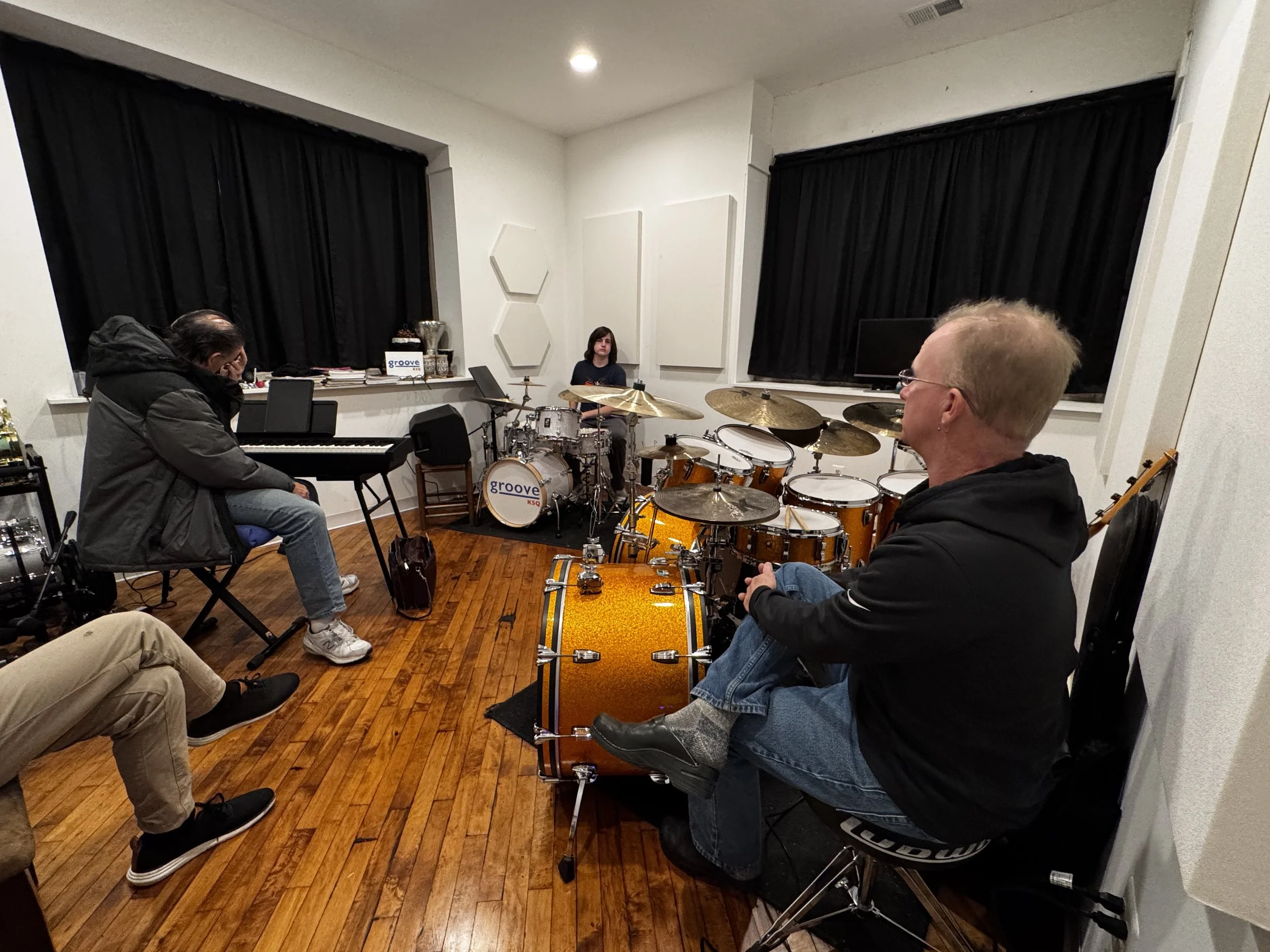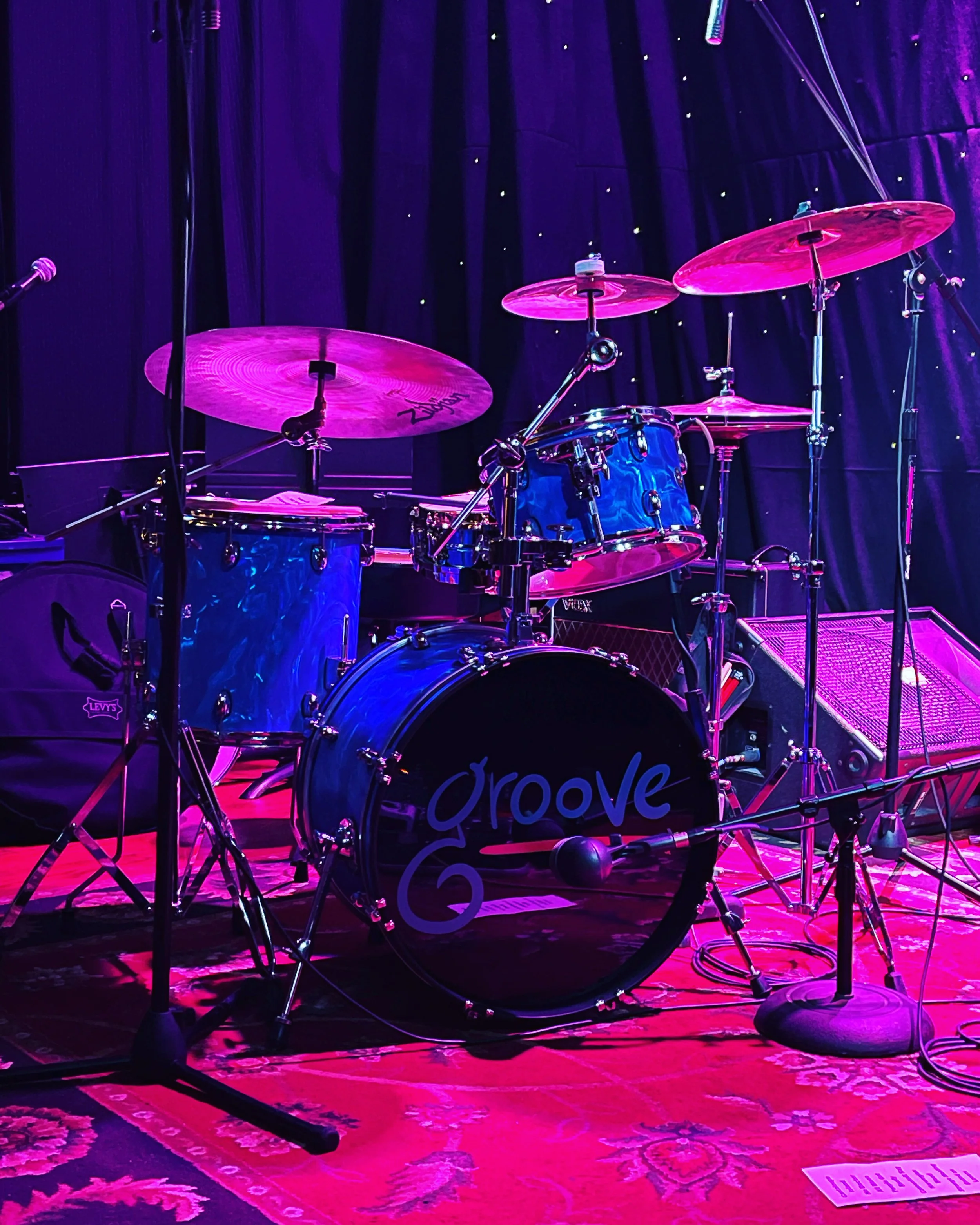A musician’s ears are every bit as important as their hands and feet and technical ability to produce musical notes on their instrument. Here at grooveKSQ, we focus on ear training quite a bit because sharp ears to a musician are what a sharp palette is to a chef: incredibly useful!
How do we strengthen a student’s listening skills? One method is the use of rhythmic dictation exercises.
Rhythmic Dictation (“RD”) is one of the skill sets that intermediate and advanced students work on here at the studio. Quite simply, RD is the process of 1) hearing a rhythm blind (i.e. the student is using their ears only, not their eyes to process information), 2) decoding that rhythm in their head, and 3) writing that rhythm down with good musical notation. This type of ear training is generally not taught in high school music classes in the way it is here at the studio in terms of the level of difficulty. As an added bonus, not only does this process strengthen the ears, but a happy byproduct is the students get to work on their notation as well.
Ear training (or aurals) is a required subject in every undergrad music education program. For those students studying marimba/vibraphone here, we can work on melodic and harmonic dictation also.











